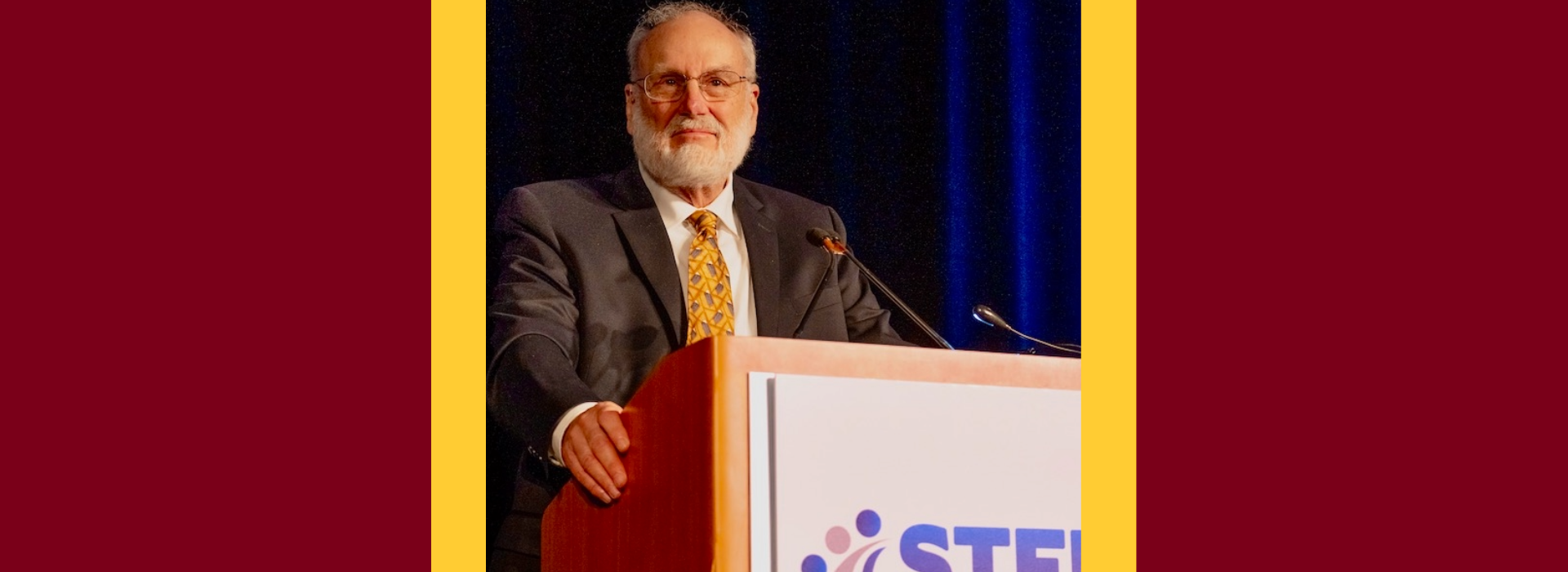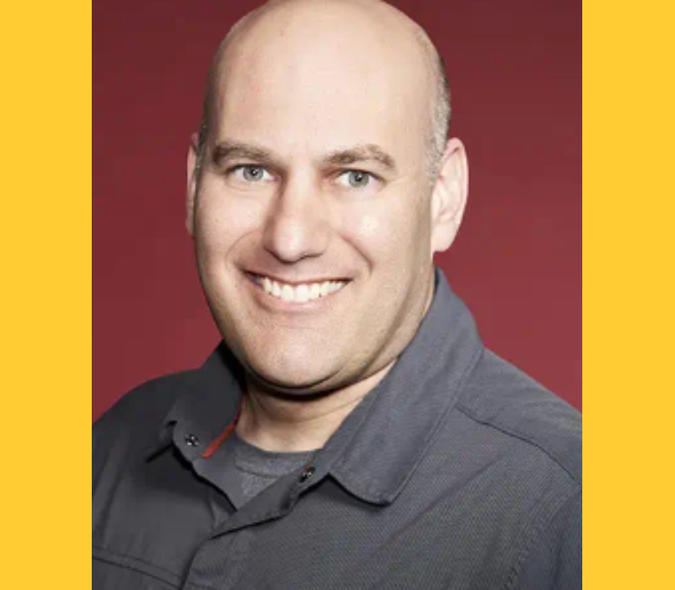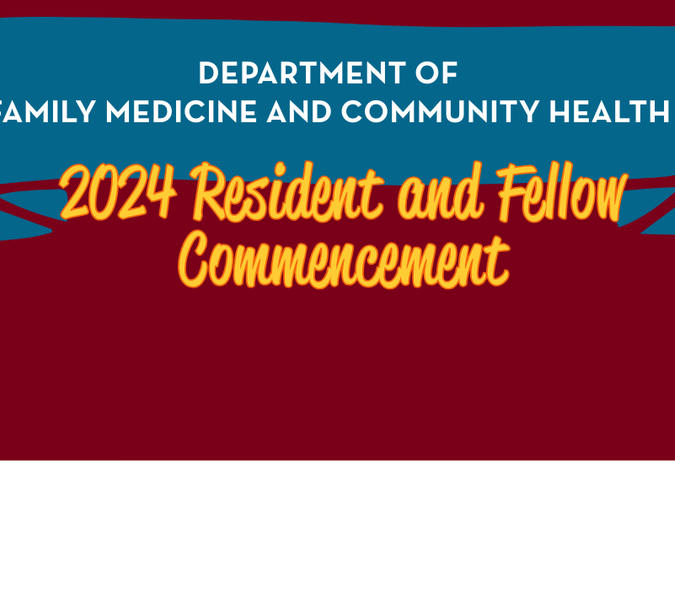
Harmonizing Family Medicine with C.J. Peek, PhD
C.J. Peek (he/him), PhD, is a professor in the Department of Family Medicine and Community Health at the University of Minnesota. We spoke about his legacy at the University and the most recent award he received from the Society of Teachers of Family Medicine, the F. Marian Bishop Leadership Award. We also spoke about his history within family medicine and his future plans to continuously forge harmonization across various medical settings.
Please provide a brief background of your roles at the University of Minnesota.
I have been in the Department of Family Medicine and Community Health at the university for about 20 years, where I am a professor. I trained as a clinical psychologist, and for many years I saw patients in medical settings, working to integrate behavioral health and medical care. I trained psychologists to work in medical settings with doctors for patients with a mixture of medical and mental health or other situational issues that were playing out in their medical care.
Much of this was at Health Partners before I was at the university. That experience helped me know many family medicine and primary care doctors, as we shared patients and took part in clinic or organization meetings. I developed an appreciation for working with physicians and the different things physicians and psychologists brought to the clinical and leadership picture. We had so much in common in our purposes, goals, what we tried to do, and how we treated people. I also really enjoyed the physicians' interest in evidence and data and found them to be fascinating people.
A new department head (at the time), Dr. Mac Baird, invited me into the University’s family medicine department, first as a consultant working with him on organizational effectiveness and integrating behavioral health and medical care. This built on my interest and experience with organizational effectiveness and leadership development—helping people get along and decide their course together. Part of this has been helping people articulate the changes they are making and writing up the results and publishing them in journals—building research and scholarship capacity in our department and in family medicine more generally.
What does it mean to you to have received the F. Marian Bishop Leadership Award?
I was very delighted and honored to receive that distinction. It meant that all the years of working with doctors in different ways around patient care, teamwork, running effective departments, publishing papers, or cracking the challenges in the field were also recognized as a form of leadership.
So it meant a lot to be recognized for a wide-ranging scope of activities focused on helping with the evolution of family medicine. I was honored to be become a Society of Teachers of Family Medicine (STFM) Bishop awardees.
Can you share what you spoke about in your acceptance speech?
The family doctors I have known are generalists. They work with unfiltered reality—people coming in with whatever medical concerns they have. Family doctors are interested in everything, not just narrow slices of reality. And I found the same thing about myself. I could never focus on just one thing, being interested in all aspects of a person. Family doctors were interested in all aspects of people, and so was I. Family doctors and I specialize in people in different ways, and that was part of the acceptance speech. I said I was so grateful for the award and for being part of family medicine and the many wonderful colleagues.
What would you say are some of the most important family medicine projects you are working on?
My longstanding work on integrating primary care and behavioral health and addressing mental health conditions and issues within primary care practice continues as I work with the Agency for Healthcare Research and Quality. In recent years, I have worked with department colleagues to harmonize our missions in academic family medicine—care, education, and research.
We created a vision to do that better about 10 years ago. We have been working on that ever since, creating an operating model and leadership habits to support people’s work in all three missions rather than feeling like the missions just compete with each other. This culminated in a recent paper in the Annals of Family Medicine.
I am involved with department leaders on internal projects such as building scholarship capacity by harmonizing the missions, what our post-COVID future needs to look like based on our experiences in that turbulent period, improving joy in practice, updating our approach to the new learner, the formation of a community engagement philosophy and function, and other initiatives over the years. It has been a joy to work with department leaders and faculty on all these.
I worked with mostly national situations where a cacophony of definitions and terms and language in emerging areas can confuse and divide—or clarify and unify. I have facilitated groups to evolve the shared language or lexicons needed to reduce ambiguity and confusion while enabling action with their shared work in areas such as integrated behavioral health, population health, shared decision-making, and other emerging fields in which initial enthusiasm exceeded the shared vocabulary.
Related to building shared vocabularies and harmonizing the missions was department work to more specifically address health equity and the needs of all our patients in underserved communities via shifts in care delivery, medical education, workforce recruitment, and participation and trust in research (our tripartite mission). This has led to a couple of papers so far.
Is there anything else you would like to share?
I am grateful for my role in the department and to the leaders who have made it possible, allowing me to be part of department projects and committees of the family medicine organizations such as ADFM, STFM, and NAPCRG. These are places to bring our department work into the national spotlight and bring back what other departments have to offer. This has provided content to publish as a blend of clinical, organizational, lexical, and leadership topics.
The most recent example, "Looking Back to Move Forward: Reflections of PBRN Directors 1978-2021,” is in press at the Journal of the American Board of Family Medicine. It captures patterns in what these directors faced, what they did about it, and the recurring archetypal dilemmas in conducting practice-based research networks. I treasure my role in our department, which makes it possible to do things like this.
Learn more about the F. Marian Bishop Leadership Award here.



